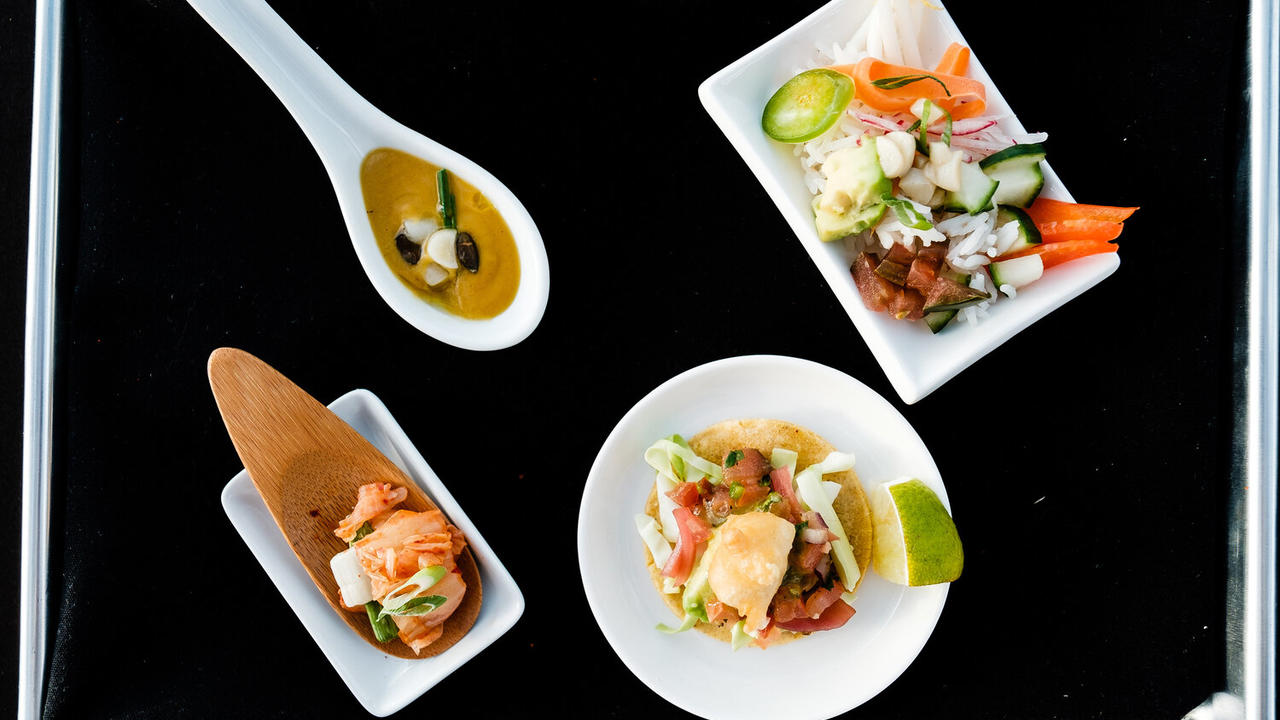BlueNalu Raises $20M in Funding to Make Cell-Based Fish

Last week, BlueNalu announced that they raised a massive $20 million in their Series A funding round. Based in San Diego, California, BlueNalu uses cellular agriculture to grow cell-based seafood. Cellular agriculture is the field of producing animal products, like fish meat, directly from cells and eliminates the need to use any marine life to produce our seafood. The field offers a sustainable way to support the global demand for seafood without further depleting global fish populations. And the future of food is coming.
Investing in the Future of Fish
BlueNalu’s Series A funding round was co-led by Stray Dog Capital, CPT Capital, New Crop Capital, and Clear Current Capital. New investors in BlueNalu’s Series A includes KBW Ventures.
All the lead investors previously invested in BlueNalu’s seed round. In August 2018, BlueNalu previously announced the close of its $4.5 million seed round that featured over 25 global investors from 11 countries. The funding round brings BlueNalu’s total funding to $24.5 million.
BlueNalu’s funding round is the largest Series A round to date for a cell-based meat company. Memphis Meats, which recently raised a massive $161 million round, previously raised $17 million for its Series A round in 2017. Interestingly, BlueNalu is only the second cell-based seafood company to announce a Series A round. In October 2019, cell-based seafood company Wild Type announced that the company raised $12.5 million to make cell-based salmon.

BlueNalu also shared that the company attracted 5 strategic investors in their Series A round that offer a wide range of expertise in supply chain, operations, sales, and distribution. Strategic investors included global supply chain and raw materials players, such as Dutch animal nutrition and fish feed company Nutreco and Griffith Foods, a global food product development company. Other strategic investors include Sumitomo Corporation of America, Pulmuone, and Rich Product Ventures, the venture arm of Rich Product Corporation.
There are still many hurdles for the field to overcome to scale, and partnerships with these established industry players may help BlueNalu overcome them.
Riding the Wave into 2020
The funding announcement continues BlueNalu’s great start to 2020 following a strong end to 2019. Last month, in January 2020, BlueNalu announced its first strategic partnership with Nutreco. According to the partnership, Nutreco will supply ingredients required to make the cell culture media for cell-based meat production.
To end 2019, BlueNalu showcased the first cell-based yellowtail amberjack fish meat. From fish tacos and poke bowls to yellowtail bisque, BlueNalu displayed that their cell-based yellowtail can be cooked in various manners and can be as versatile as conventional yellowtail.

In addition, in November 2019, BlueNalu launched their new platform, Eat Blue. Eat Blue is an educational platform promoting sustainability content and encouraging sustainably-sourced seafood consumption. The platform plans to publish content relating to ocean health, human health, animal welfare, and the economic impact of sustainable seafood.
Eat Blue aims to be similar to the “go green” initiative, striving to inspire a generation of informed consumers to enjoy their seafood without compromising their commitment to sustainability. Eat Blue plan to announce new partnerships with leading organizations and expanded network of global ambassadors to help shape the future of sustainable seafood.
In the future, similar to how schools taught the importance of ‘going green’, will schools teach students the importance of ‘eating blue' to preserve our oceans?
Conclusion
BlueNalu plans to use the funding round to expand its team, implement their strategic alliances, and develop a Good Manufacturing Practices (GMP) pilot production facility in San Diego to prepare for their market launch. While there is no set date, BlueNalu aims to have a limited release of its first cell-based fish product in mid-to-late 2021 in selected restaurants. Even though their showcase dinner consisted of cell-based yellowtail amberjack, BlueNalu’s first product to market will likely be cell-based mahi mahi fish meat.

It’s promising to see BlueNalu announce strategic partnerships with key players in both supply chain sourcing as well as marketing and distribution. Not only will partnerships reduce costs for cell-based meat companies, it will also encourage specialized vendors to help support and grow the entire cellular agriculture field. It will be important for the company to find partners to help source key ingredients to produce cell-based meat as well as help with downstream logistics as companies like BlueNalu look to scale production.
In August 2019, BlueNalu shared how they plan to commercialize their cell-based seafood through a 5-phase plan. Starting at R&D and small pilot scale testing in the early phases, BlueNalu expects to produce more then 18 million pounds of cell-based seafood annually in their large scale commercial manufacturing facilities in its Phase 5 down the road. This was the first time that a cell-based meat company shared its plans and facility design images to show how their large-scale production would look.
Stay connected with CellAgri
Join our mailing list to receive the latest news and updates weekly from the cellular agriculture industry. Your information will not be shared.



